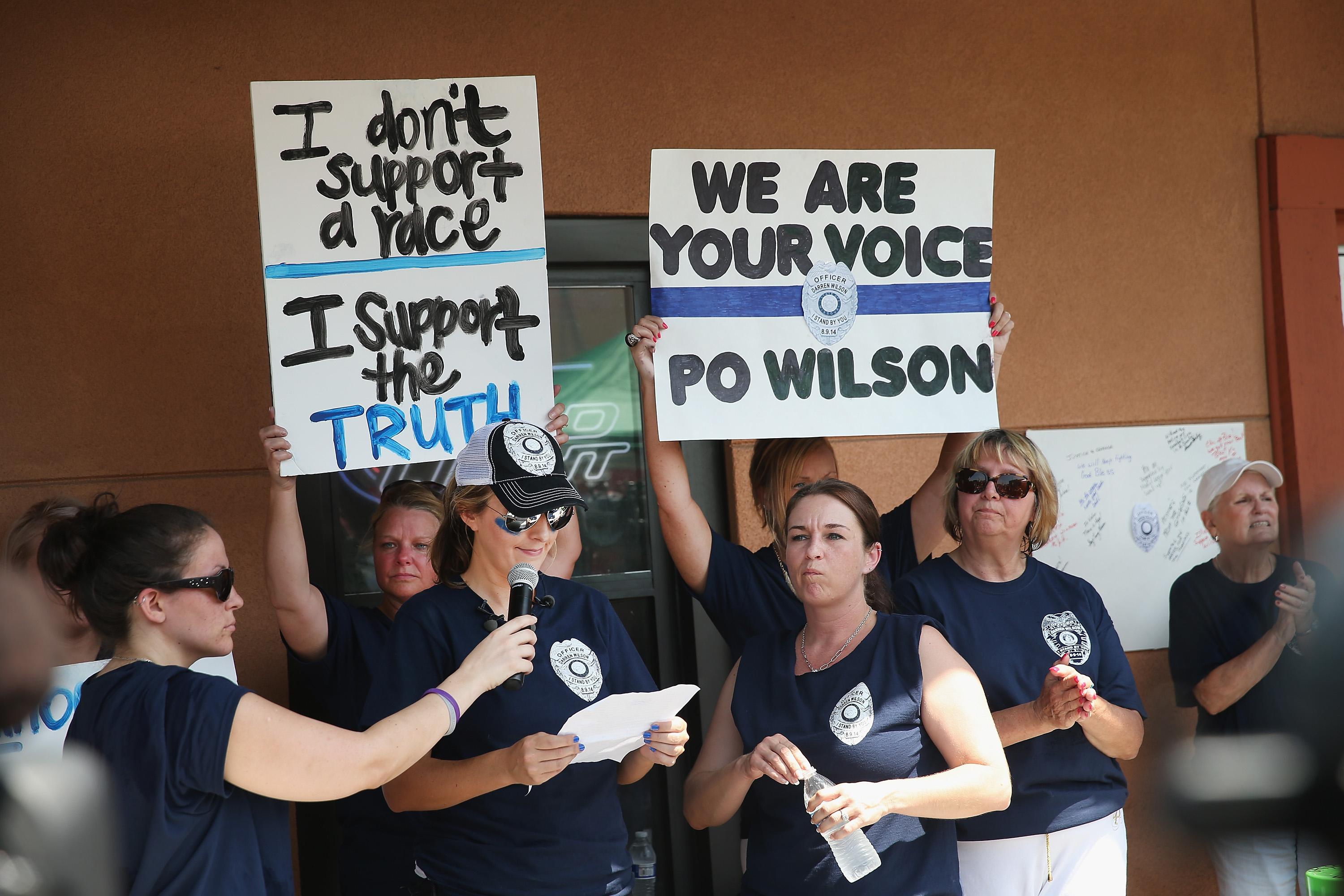Ferguson police officer Darren Wilson’s legal team sat down with the Washington Post for an interview on Wednesday. The lawyers described the deliberate legal strategy implemented to keep Wilson out of the public eye, to keep his story consistent. From the Post:
They determined quickly after the shooting that Wilson shouldn’t speak publicly — in contrast to George Zimmerman, a volunteer watchman who in 2012 shot black teenager Trayvon Martin — because it could only hurt his case… He stayed silent publicly, and when he spoke to investigators and jurors, his version of events remained consistent… As the grand jury proceedings moved along over the past few months, Wilson’s lawyers — a group familiar with representing police cases — said they felt confident that they had the upper hand. That’s largely because witnesses who did speak publicly told conflicting stories about the 90-second encounter between Wilson and Michael Brown. If the grand jury had determined that Wilson should face a criminal trial, they would have had plenty of ammunition when cross-examining witnesses, they said.
The lawyers also recount the lengths Wilson went to in order to stay out of sight for more than three months following his Aug. 9th shooting of Michael Brown.
Darren Wilson was mowing his lawn on Aug. 19 — 10 days after he’d shot an unarmed teenager — when he got a call telling him that his address was popping up in online reports. He quickly packed up his belongings and moved in with a relative, somebody who didn’t have the same last name. By nightfall, media members were outside the house. Wilson then spent about a week with one of his lawyers, Greg Kloeppel, until finally he moved into what his legal team now calls the “quote-unquote permanent location,” which they declined to disclose. Wilson hasn’t been back to his ranch-style home since he stopped cutting the grass midway through…
[The lawyers] also described a period of life on the run in which Wilson bounced from house to house but rarely went out in public… One Wilson lawyer, Neil Bruntrager, said that Wilson used “certain [disguise] tricks” he’d learned as a police officer to go out incognito, without specifying what they were. He preferred going to movies because of the darkness.
